Where sex matters | Sport
Sport
Policies that allow males to play in women’s sport are not supported by evidence. They are unfair and unsafe.

Sport is divided into male and female categories for very good reason. Men are taller, faster and stronger than women. They have bigger bones, longer limbs, wider hand spans, wider shoulders and a narrower pelvis. They have larger and denser muscles, with a higher proportion of fast twitch fibres, and larger hearts and lungs. These are the result of being born with a male body and going through male puberty.
Even from a very young age, boys perform better in tests of speed, power and strength. Each year, thousands of boys and men outperform elite women. Every women’s world record in athletics has been broken by a teenage boy.
Female excellence, participation and safety in sport depends on sex-segregation. Female athletes at every level will lose if they have to compete with and against males.
What is the problem?
In recent years the female category has been opened up to male athletes who identify as women, on the basis of weak evidence and guidance to prioritise “inclusion”ahead of fairness. How we got here is explained in this article by Fiona McAnena.
In 2003 the International Olympic Committee (IOC) decided that men who had undergone “sex reassignment surgery” – removal of testes so they no longer produced testosterone – should be allowed to compete in women’s sport at all levels. They said that there would be so few trans-identifying males wanting to enter women’s sport that the impact would be minimal. This policy was adopted by national governing bodies of sports in the UK and elsewhere. The surgery requirement was dropped in 2015, replaced by a testosterone limit far above that of women. In practice, since testing of testosterone levels requires a blood test, and challenging a trans-identifying person has been made socially unacceptable, in most sports any man declaring a female identity has been able to compete against women.
Female athletes are losing medals and opportunities to males.
It’s not just about competitive sport. Female-only activities such as swimming, recreational cycling, gym and yoga classes increase women’s participation, which lags behind men’s. Losing those, or fearing that there will be a male in the women’s changing room, is a deterrent for some women and girls, as this report by Fair Play For Women shows.
Where are we now?
The science is increasingly understood. Scientific studies of physical changes in males suppressing testosterone (either because of transgender identity or as part of therapeutic treatment for testosterone-related illness) show that muscle mass, strength and skeletal differences between males and females remain large even after transition.
The conflict between “inclusion” based on gender identity and fairness and safety for women is increasingly recognised. In 2021 the UK’s Sports Councils Equality Group published revised transgender inclusion guidance, prompting sport governing bodies to rethink their rules on who is eligible for female categories of competition. The guidance concluded that:
“The inclusion of transgender people into female sport cannot be balanced regarding transgender inclusion, fairness and safety in gender-affected sport where there is meaningful competition. This is due to retained differences in strength, stamina and physique between the average woman compared with the average transgender woman or non-binary person assigned male at birth, with or without testosterone suppression.”
The three biggest sports by participation – swimming, cycling and athletics – now restrict female competition to those who have not been through male puberty. Their world federations have also done so, meaning no males in women’s events for those sports at Olympic or World Championships.
But many UK and most world sports governing bodies have not restored fairness for females in sport. In some sports, like cricket, football, hockey, ice-hockey and combat sports, there’s a serious safety issue too.
Updates
-
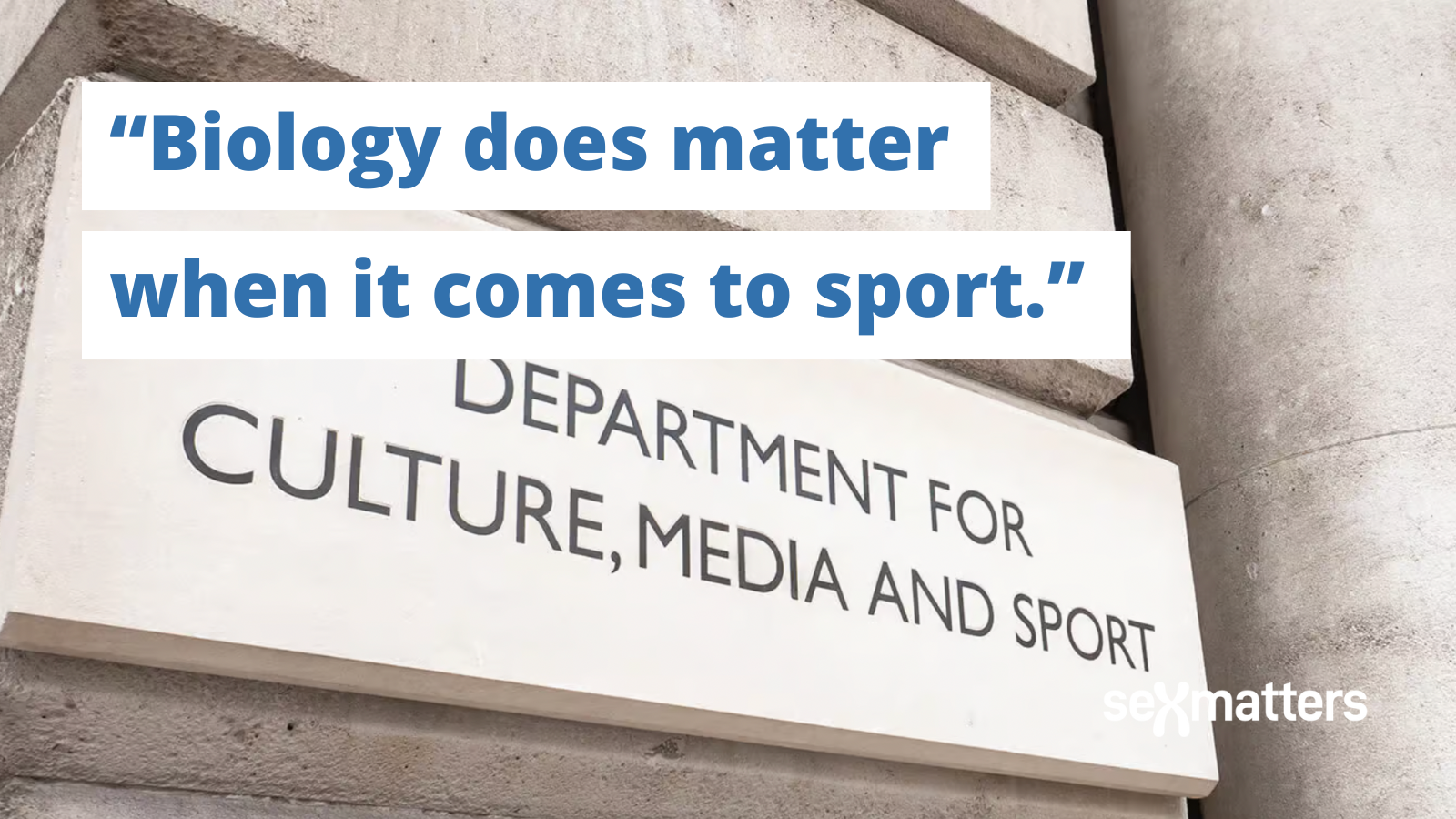
Is Labour positioning itself to fix the mess in women’s sports?
On 23rd July The House magazine, a publication for MPs and peers, published an interview with the new Secretary of State for Culture, Media and Sport, Lisa Nandy MP. In it, she said that sport governing bodies should make their own policies concerning trans inclusion, rather than leaving it...
25th July 2024
-
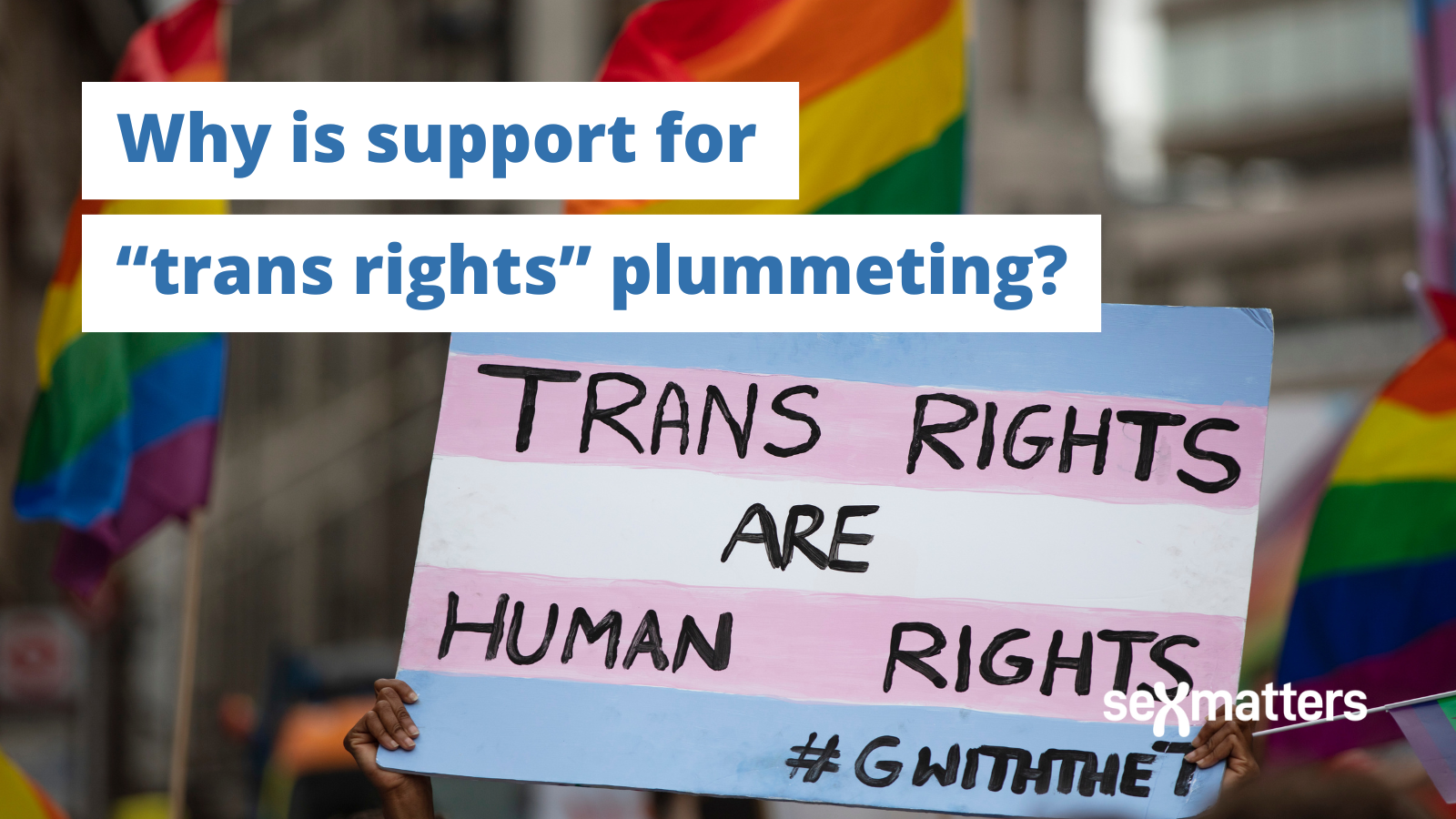
Why do people think “transgender rights” have gone too far?
It’s not just about self-ID Support for the law that allows people to change the sex recorded on their birth certificate has fallen a long way over the past few years, most sharply when self-ID was being proposed, in 2018–19 in the UK and then again in 2021–22 in...
14th June 2024
-

Stonewall chair speaks (and then recants)
Iain Anderson, chair of trustees for Stonewall, has given an extended interview to Sky News’s Beth Rigby. It is well worth watching the whole thing. In the interview Anderson seemed to be trying to distance the organisation from the extreme position it has taken, saying that he recognises that...
22nd July 2023
-
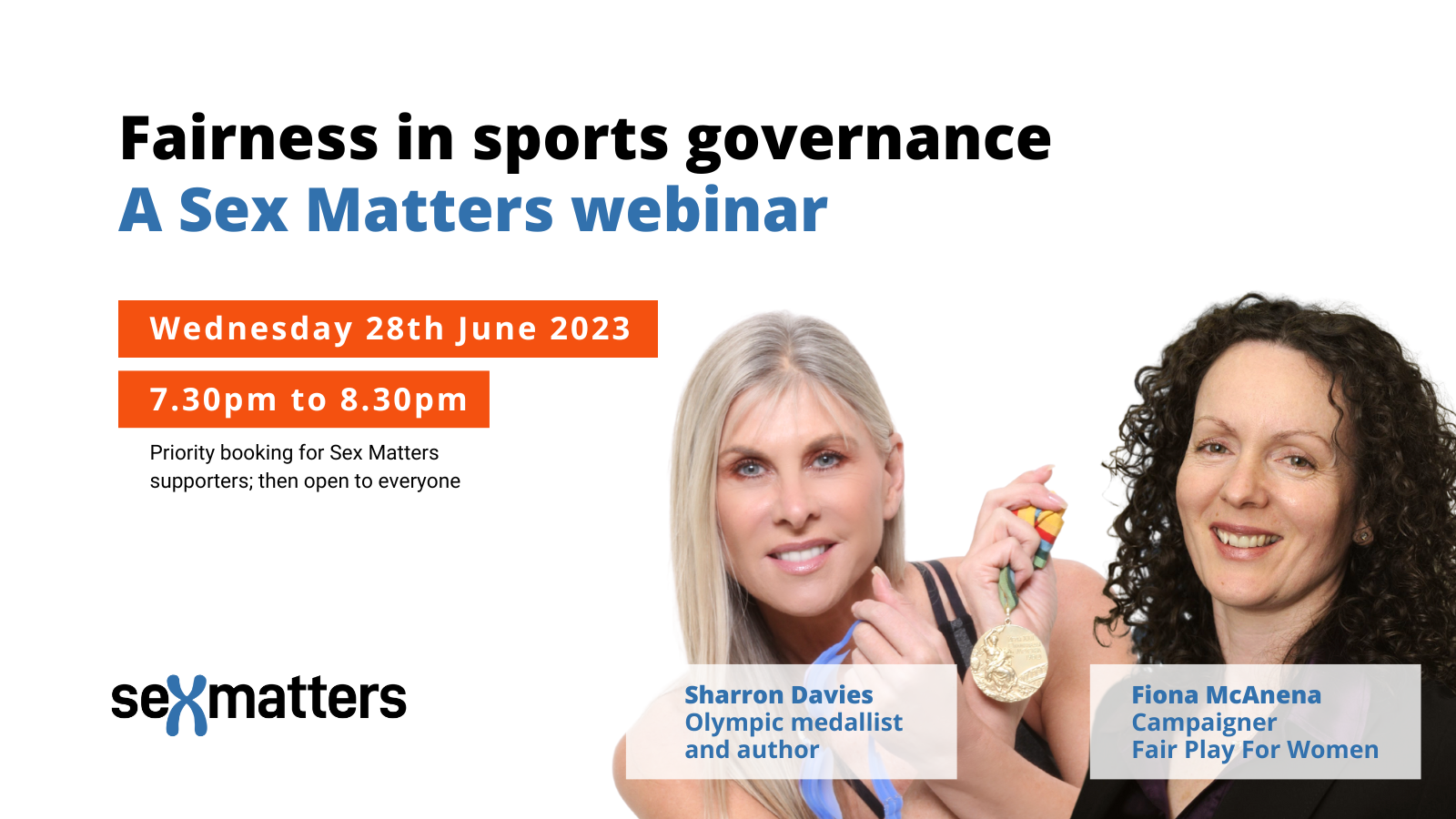
Fairness in sports governance: a Sex Matters webinar
Our director of advocacy, Helen Joyce, talked to Olympian Sharron Davies and campaigner Fiona McAnena on 28th June 2023 about the work they and others have been doing to reverse unfair policies that allow male athletes into female sporting events on the basis of self-declared “gender identity”. This webinar...
21st June 2023
-
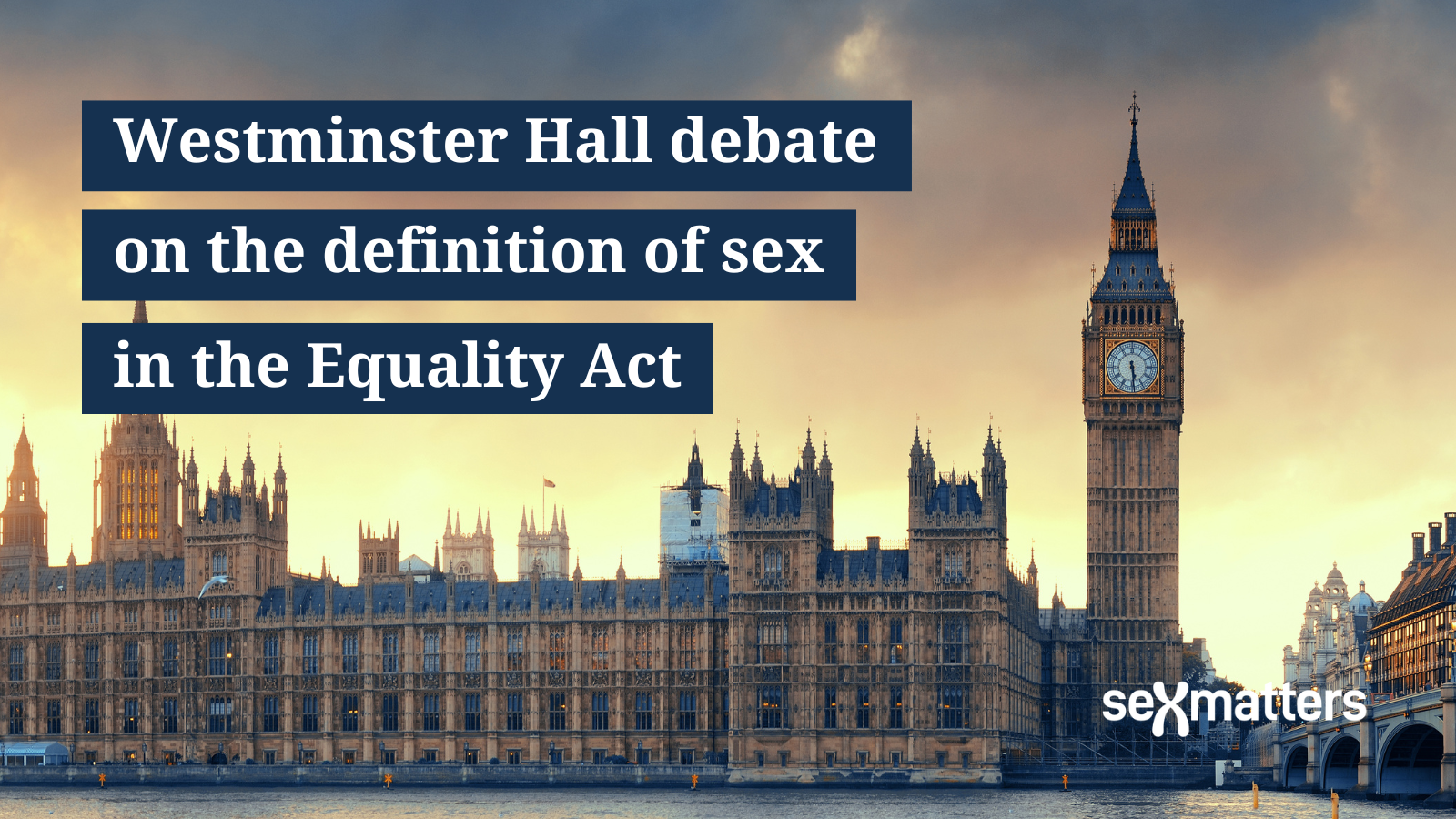
Westminster Hall debate on our petition to make the Equality Act clear
Monday 12th June 2023 For the full official transcription of the debate, see Hansard. In the Chair, Judith Cummins began by reminding everyone that the petitions being debated indirectly related to two ongoing legal cases in the Scottish courts, but that reference to those would be allowed. Tonia Antoniazzi (Gower)...
13th June 2023
-
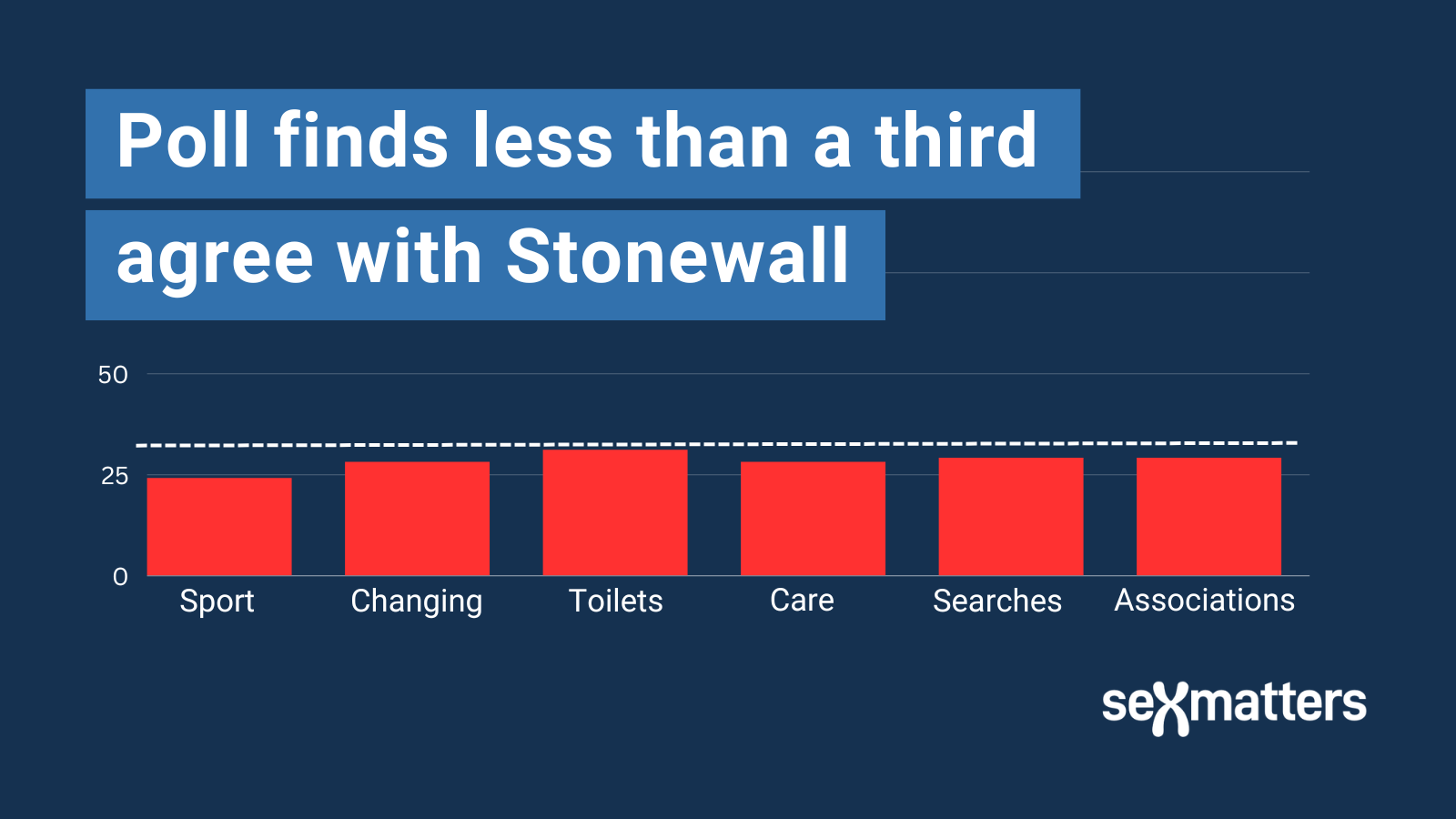
Less than a third of Brits say transwomen should be allowed in female-only spaces and sports
Sex Matters has today released the findings from a representative national poll. It finds that less than one in three Britons believe that transwomen – men who identify as women – should be allowed in women’s sports, changing rooms and toilets, or to provide ‘female-only’ intimate care. The lack...
5th June 2023
-
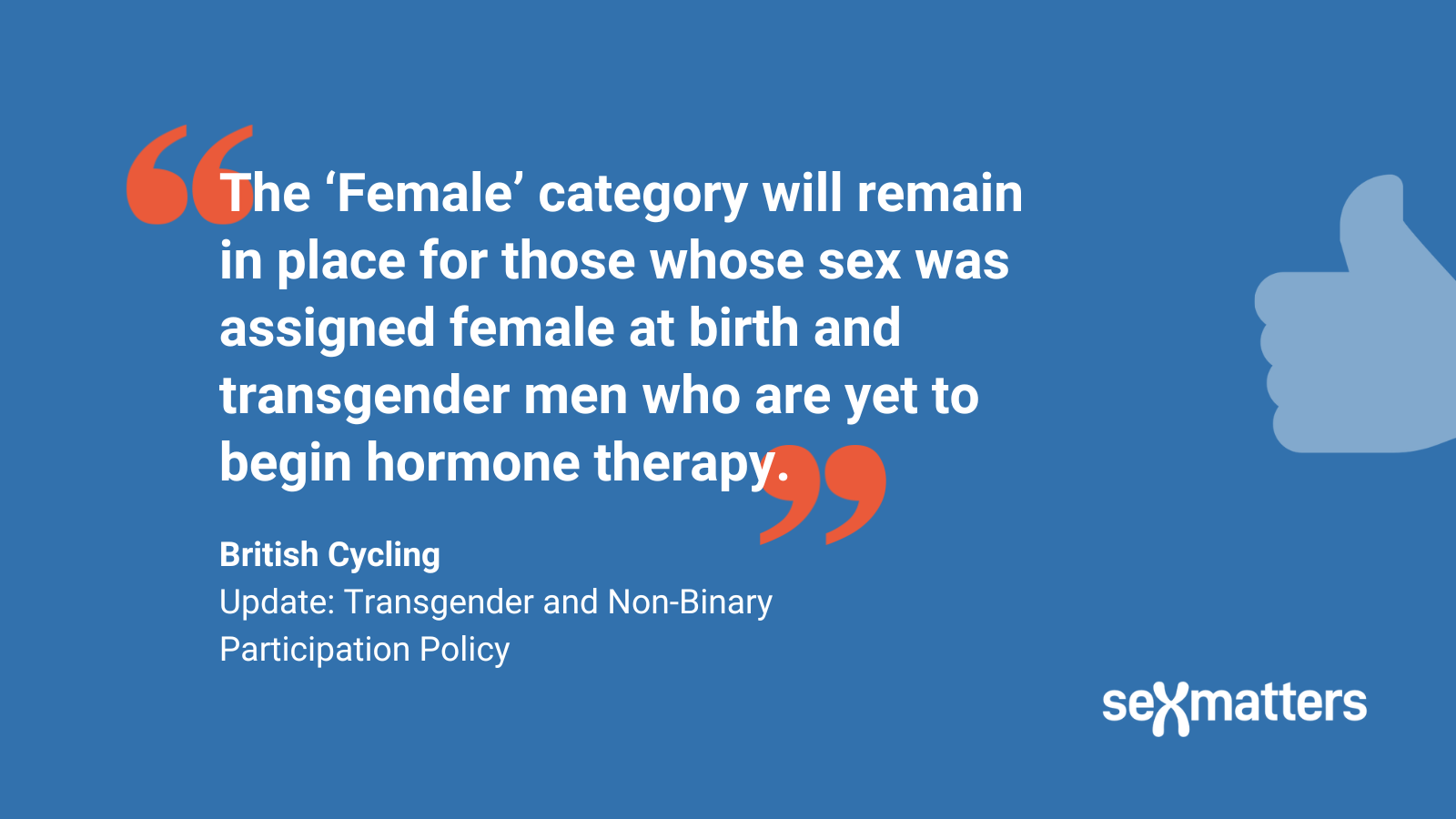
British Cycling excludes trans-identified males from competitive female cycling
In April 2022, British Cycling made global news when it revoked eligibility for Emily Bridges, a Welsh trans-identified male cyclist, who was poised to make his debut in the female category. This would have been in a major-track cycling event, against one of Britain’s most decorated cyclists, Dame Laura...
26th May 2023
-
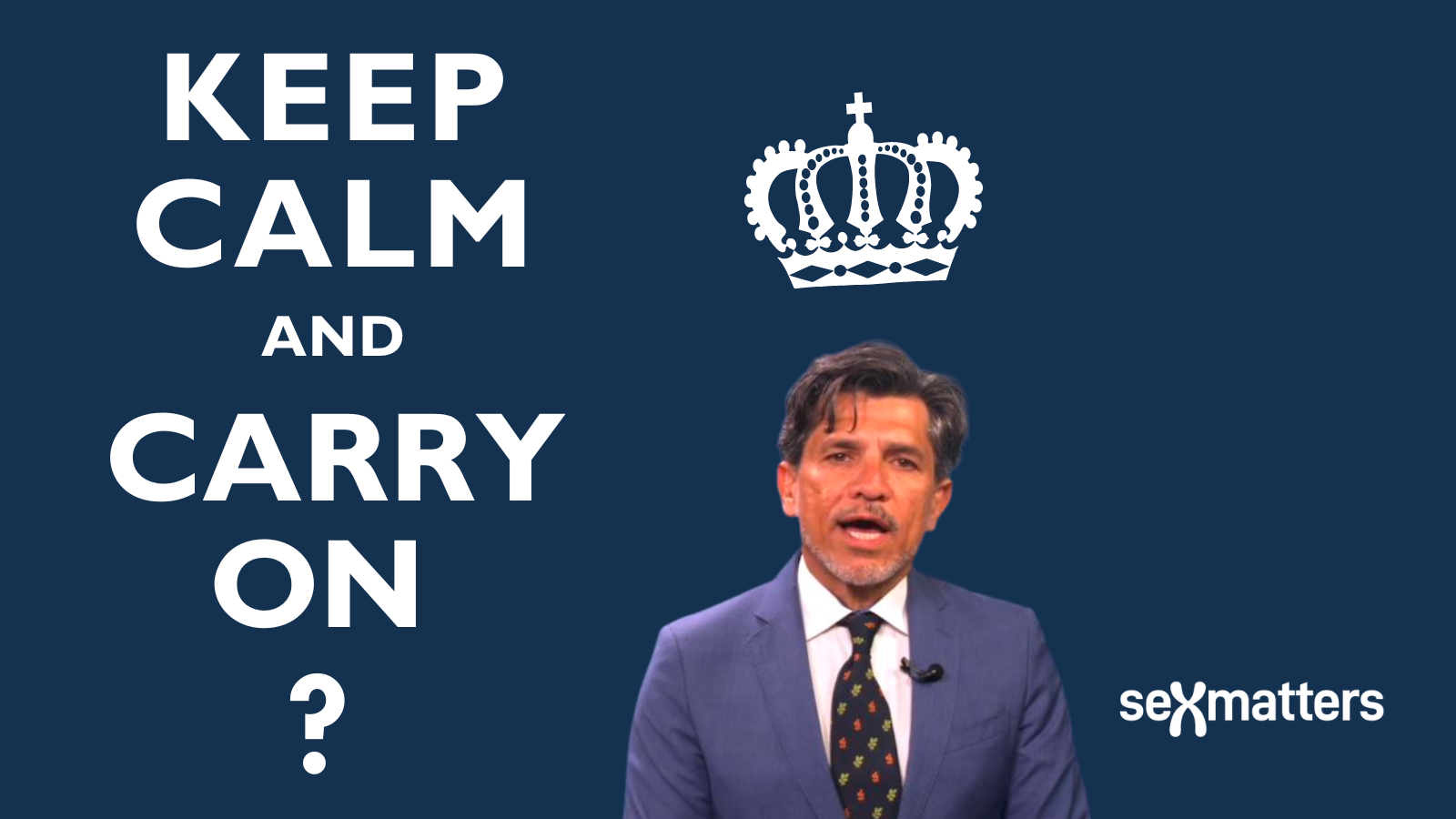
Response to Victor Madrigal-Borloz’s report on the UK
The UN Independent Expert Victor Madrigal-Borloz has issued an extraordinary report at the end of his ten-day mission to the UK. The thrust of it is the familiar claim that speaking clearly about the material reality of the two sexes amounts to “hate”, alongside the equally familiar dismissal of...
12th May 2023
-

Answers to questions on sex, gender, biology and identity
Sex Matters has written a set of frequently asked questions which seeks to provide answers in everyday language about the material reality of sex, and the idea of gender identity. The aim is to provide clear starting points for debate and discussion, for anyone trying to understand the competing...
28th April 2023
-
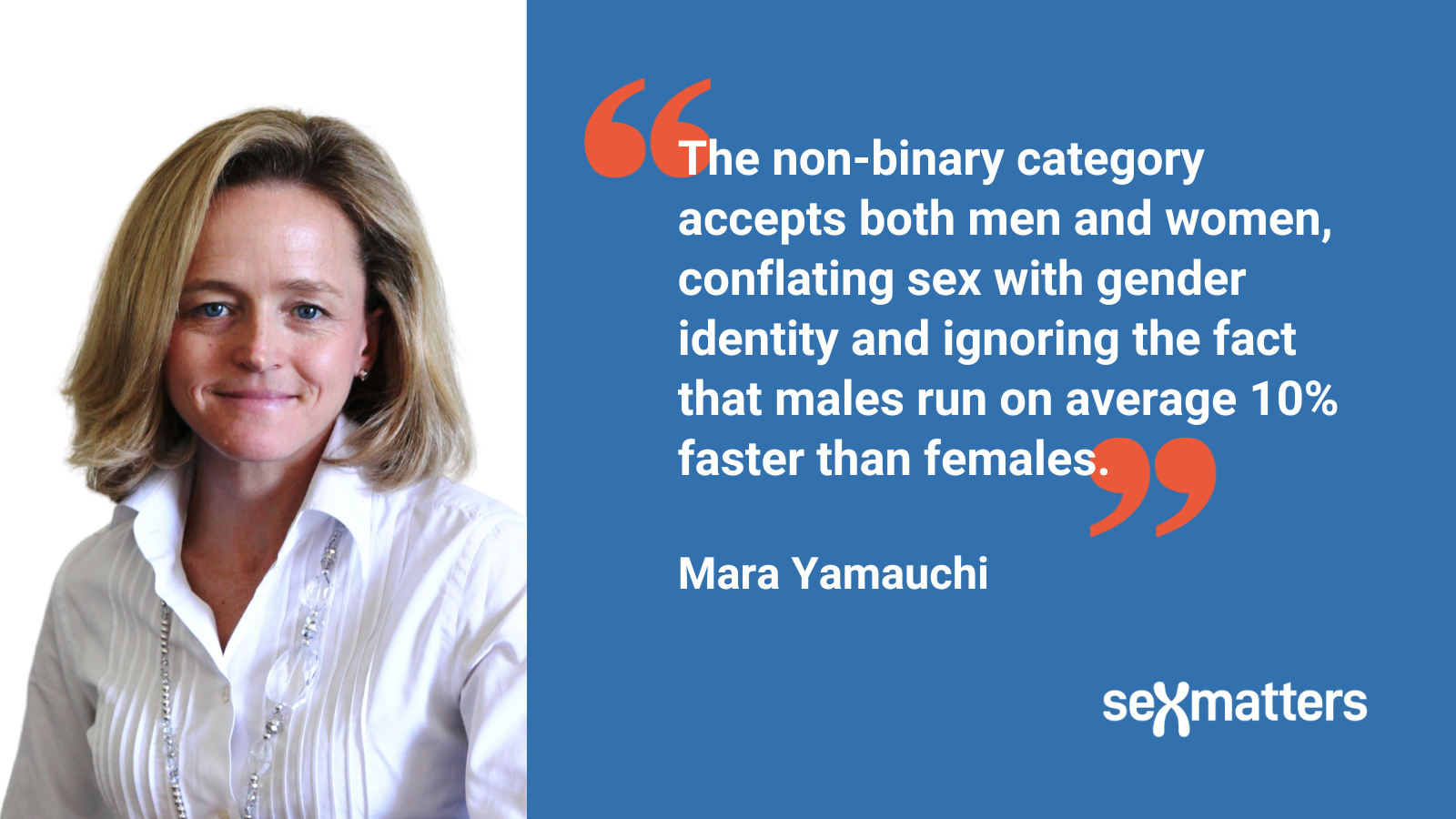
The non-binary category in marathons
Mara Yamauchi is the UK’s third-fastest female marathon runner ever and a two-time Olympian. She is a member of Sex Matters’ advisory group and has written this guest blog. Since 31st March, post-puberty males have been banned from the female category by World Athletics – in world rankings competitions...
26th April 2023
-
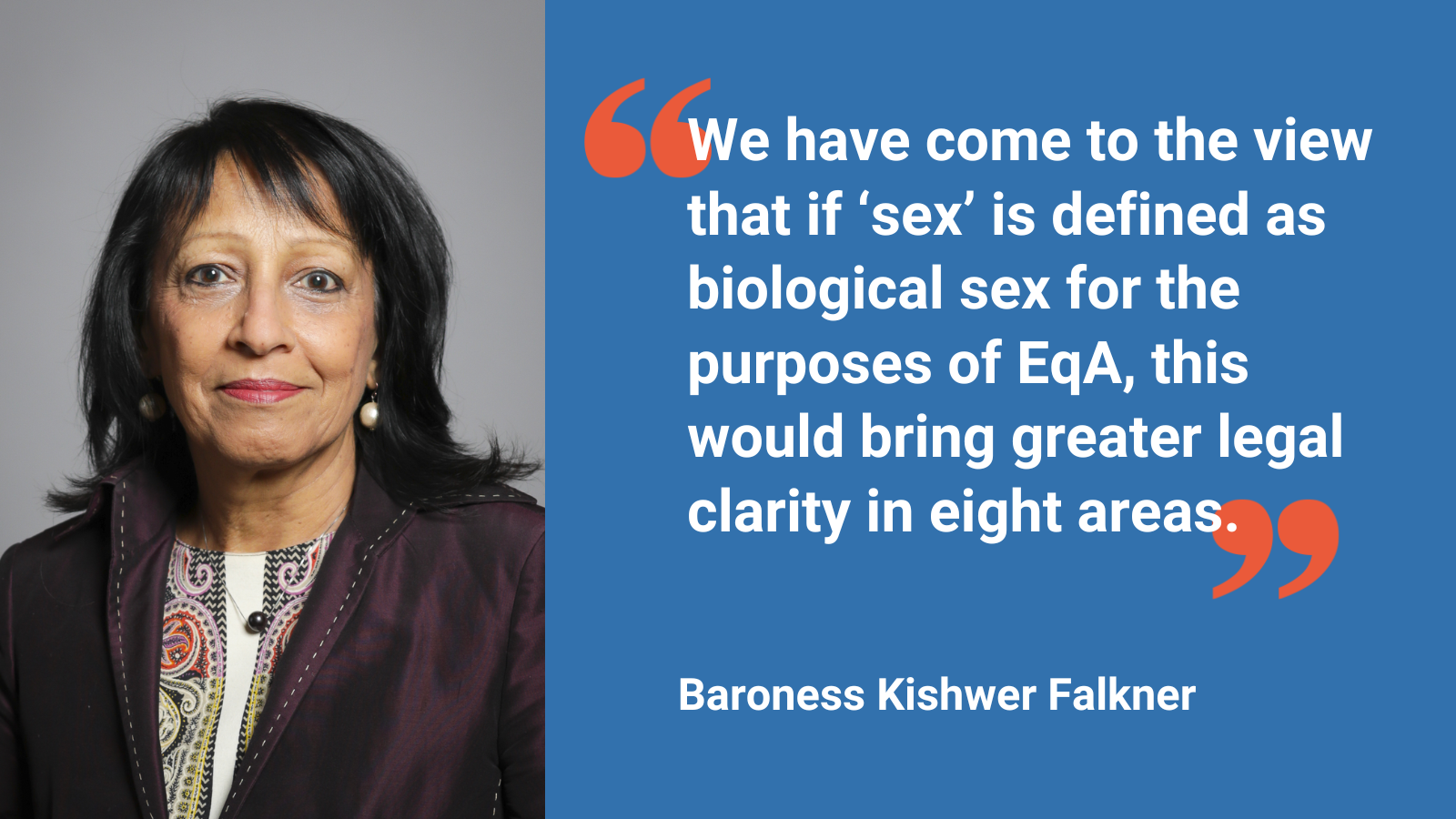
EHRC publishes letter on clarifying sex in the Equality Act
Sex Matters’ press statement Sex Matters welcomes the letter from Kishwer Falkner, Chair of the Equality and Human Rights Commission, to Kemi Badenoch, the Minister for Women and Equalities, responding to her request for advice on clarifying the definition of the protected characteristic of sex in the Equality Act...
4th April 2023
-
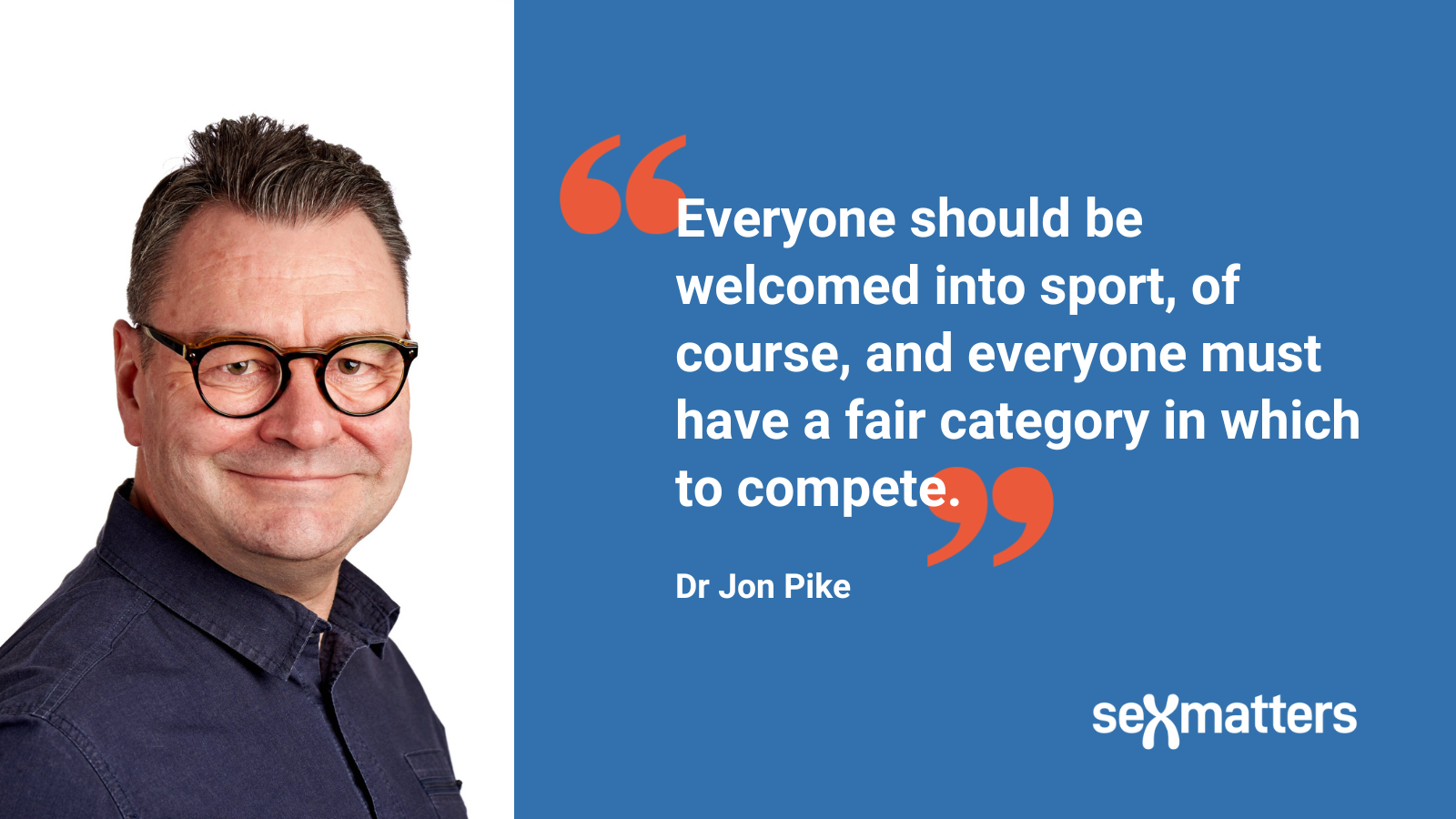
Fairness matters in sport
Philosopher Dr Jon Pike has written a guest blog post for Sex Matters, based on his recent article published in the Journal of the Philosophy of Sport: ‘Why “Meaningful Competition” is not fair competition’. In that article, he sets out case for a two-category model for sport, female and...
24th March 2023
-

How UK Athletics was misled
UK Athletics has put out a statement saying – with regret – that it cannot lawfully exclude trans-identifying men who have GRCs from participation in women’s events. The material part of the statement says: “10. There is a duty in s.9(1) of the Gender Recognition Act 2004 to treat...
3rd February 2023
-
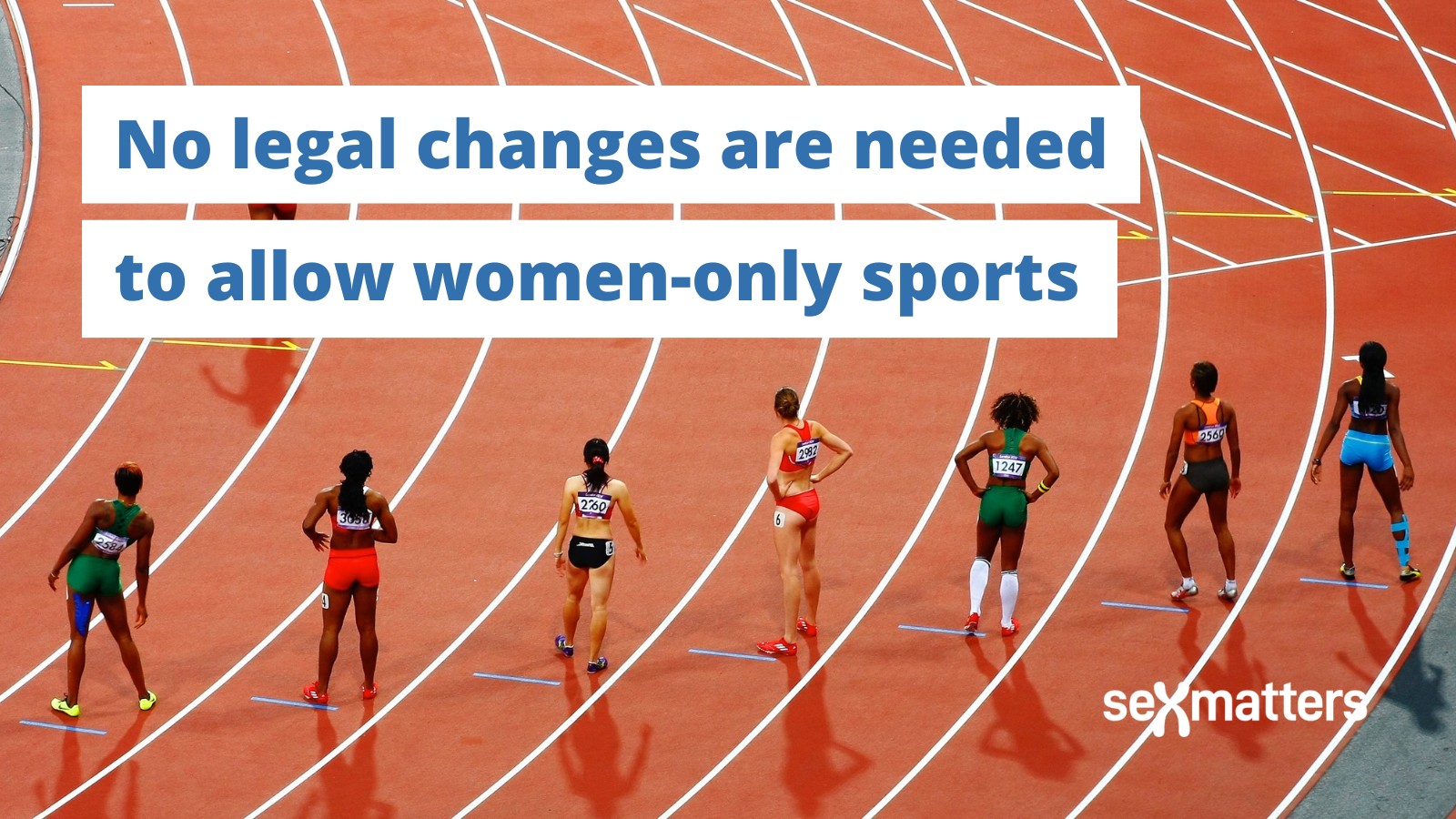
Why are lawyers giving faulty advice about women-only sports?
The governing body for the sport of athletics in the United Kingdom, UK Athletics, has called for the government to amend the Equality Act in order to guarantee the legality of female-only sports. While Sex Matters agrees with UKA that female-only sports are essential to provide safe and fair...
3rd February 2023
-

Risks in the final rush to legislate self-ID in Scotland
The Scottish government’s plans to allow anyone from age 16 upwards who is ordinarily resident in Scotland to obtain a gender recognition certificate (GRC) without any medical assessment are due to be voted on by the Scottish Parliament tomorrow, 21st December. The vote comes barely a week after the...
20th December 2022
-

Clarify the Equality Act: sign the petition
The Equality Act 2010 protects everyone’s rights and covers everything from schools to hospitals, pubs to sports, and everybody’s workplace. It includes protection against sex-discrimination, and allows single-sex services. But on 13th December a judge in Scotland pronounced that Equality Act does not recognise biological sex as a protected...
16th December 2022
-
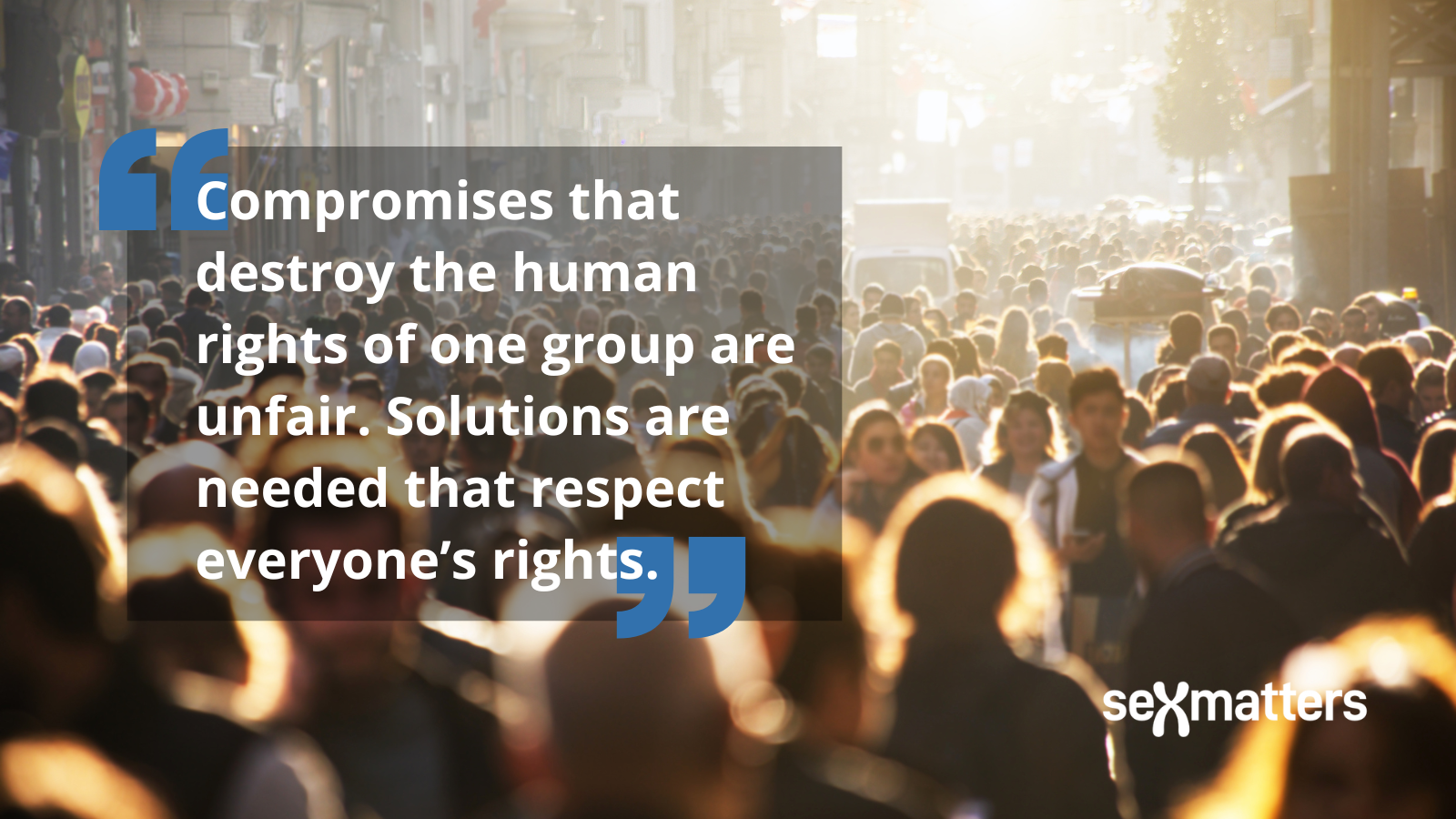
Trans rights are human rights!
Sex Matters is a human-rights organisation. We believe that universal human rights form a powerful framework for thinking about how a diversity of freedoms can be respected, while protecting against harm and maintaining an open and prosperous society. It is sometimes argued that those who call for clarity on...
9th November 2022
-
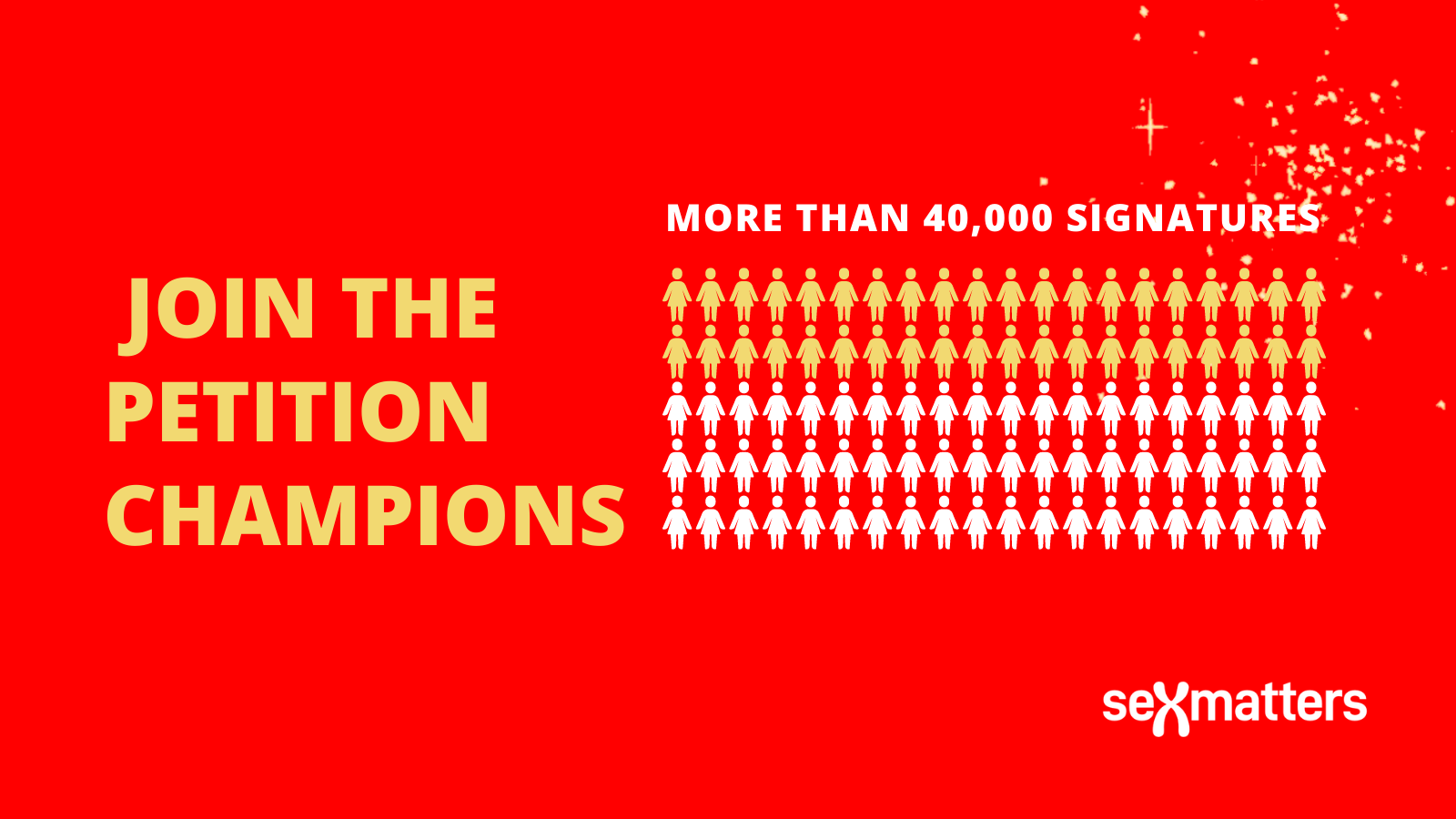
Petition champions
After just three days we were over a quarter of the way to the 100,000 signatures needed to prompt a parliamentary debate. We’ve now got more than 40,000 signatures. Thank you to everyone who has already signed the Make the Equality Act Clear Petition. Every signature helps! If everyone...
5th November 2022
-

Sex and the law – share our short guide
What does intersex mean? Are you allowed to mention someone’s sex if they don’t want you to? Has someone with a gender recognition certificate changed their sex? Do you have the right to privacy when you’re taking your clothes off? Is it discrimination to keep male people out of...
4th August 2022
-
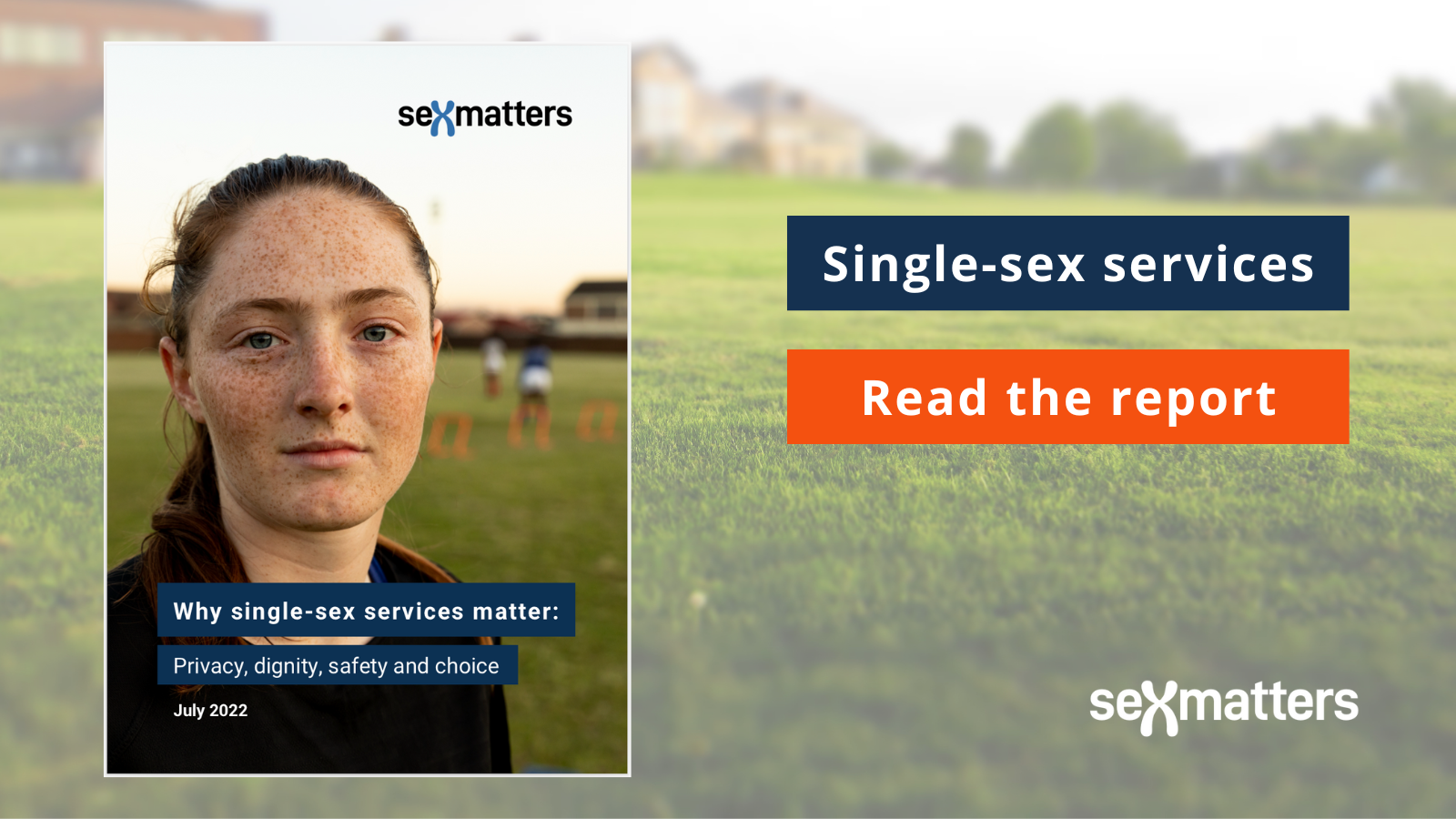
Why do single-sex services matter?
In February 2022 Sex Matters undertook a survey to find out why single-sex services matter to people. The response was astonishing. In a little over a week we received over 7,000 replies, nine out of ten of them from women. Many included details about how the loss of everyday...
19th July 2022
-

Sex Matters response to “More in Common”
More in Common is an organisation that seeks to “build societies and communities that are “stronger, more united, and more resilient to the increasing threats of polarisation and social division”. Perhaps as a response to this challenge from Maya Forstater, it has applied its approach to the gender wars....
16th June 2022
-
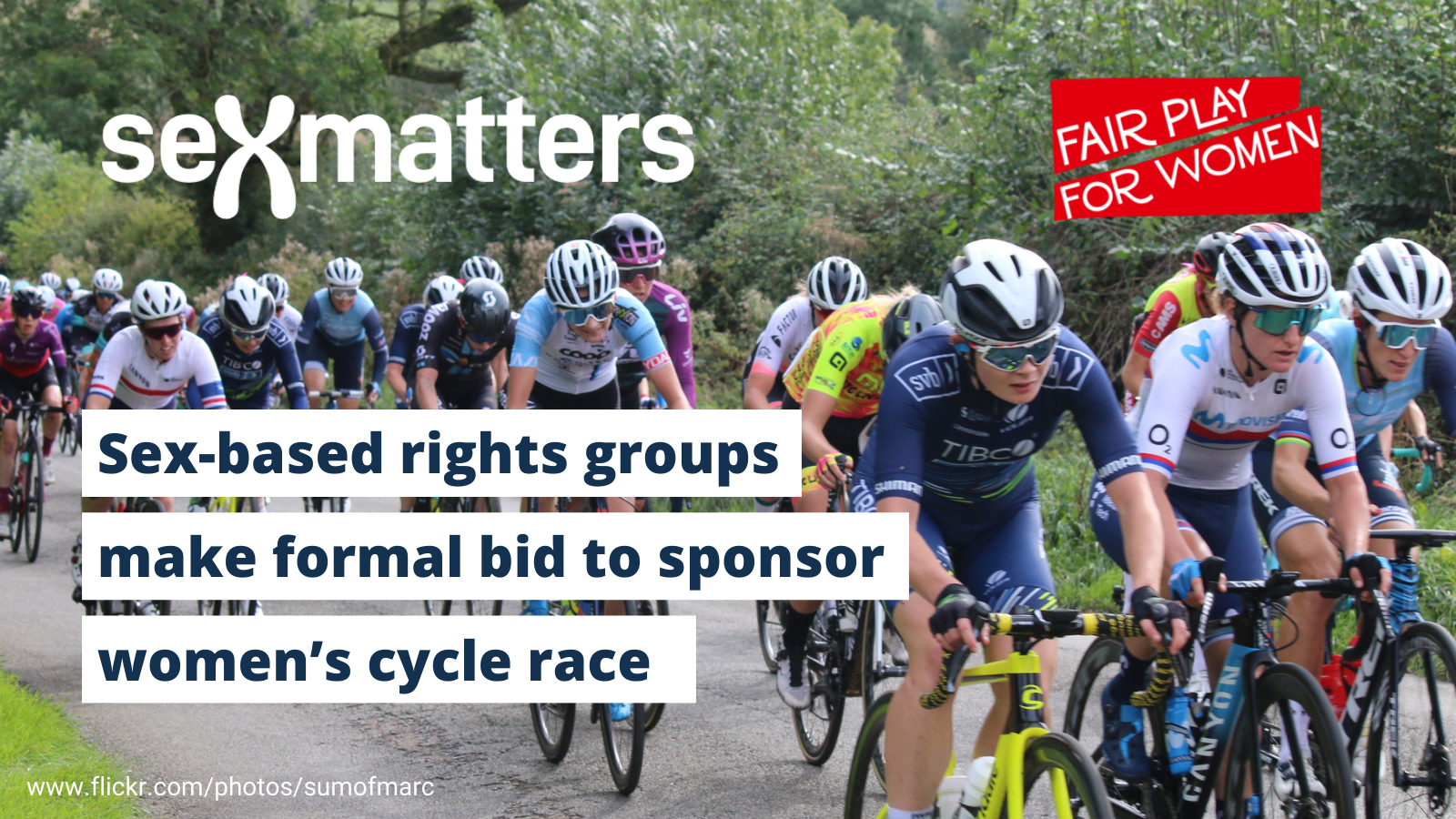
Women’s cycling race saved after campaigns raise public support
UPDATE : Saturday 16th April
Sex Matters and Fair Play For Women welcome the announcement that the Women’s CiCLE Classic has been saved, with an offer of a three-year sponsorship deal being finalised by the race organiser.
13th April 2022
-

British Cycling and Emily Bridges
Sex Matters welcomes the statement from British Cycling that Emily Bridges is not eligible to participate in the British National Omnium Championship on Saturday 2nd April 2022, following the application of Union Cycliste Internationale (UCI) guidelines. British Cycling has chosen to recognise Emily’s disappointment, but not the distress, anger, and...
30th March 2022
-

Women in sport, gender identity and the Equality Act
Cathy Devine’s article ‘Female Sports Participation, Gender Identity and the British 2010 Equality Act’ was published in the journal Sport, Ethics and Philosophy (open access version). In this guest post, Cathy Devine explains her findings on the impact of “self-identification eligibility criteria” on women in sport. If the criteria...
11th November 2021
-

EHRC to issue guidance on single-sex and separate-sex services
Baroness Falkner, Chairwoman of the Equality and Human Rights Commission has told ministers that the body is acting on a request by MPs to issue hospitals, schools, prisons and private firms with “worked examples and guidance” that will “provide clarity … on the provision of single-sex services.” It is...
18th October 2021
-
Inclusion or fairness: new guidance for sport in the UK
Sex Matters response to the Sports Council Equality Group Guidance on Transgender Inclusion. On 30th September, the Sports Council Equality Group (SCEG), which is composed of members of the five major sports councils within the United Kingdom, published new guidance for UK National Governing Bodies and Sports Governing Bodies....
30th September 2021
-
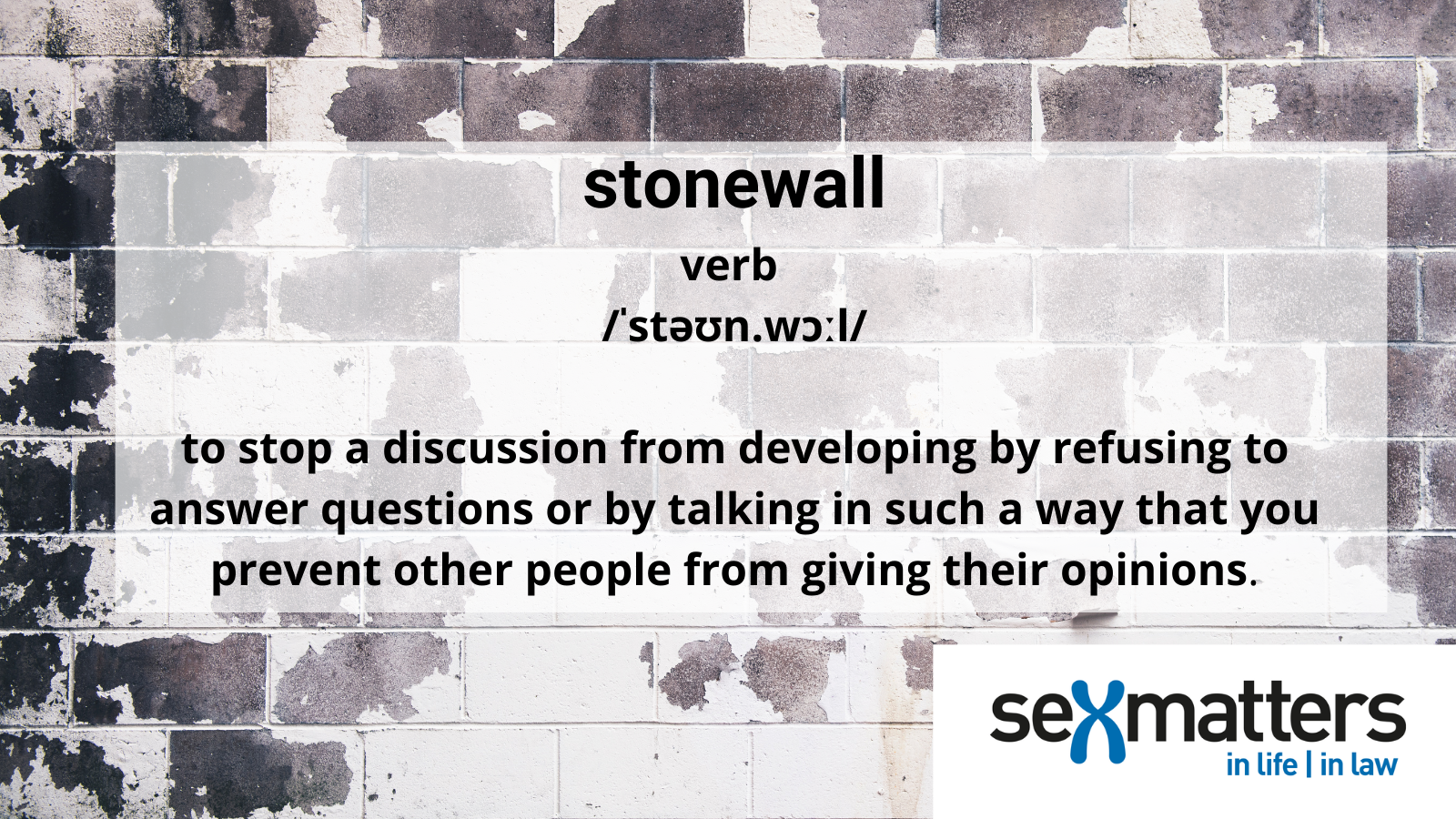
Truth and reconciliation
How should the public sector leave the Stonewall Champions Scheme?
6th June 2021
-

Time to #LeaveStonewall
This is the letter we have sent to the CEOs of the 850 organisations that are members of the Stonewall Diversity Champions Scheme. Re: Leaving the Stonewall Diversity Champions Scheme We are writing to call on you to withdraw from the scheme, both for the sake of your own...
29th May 2021
-
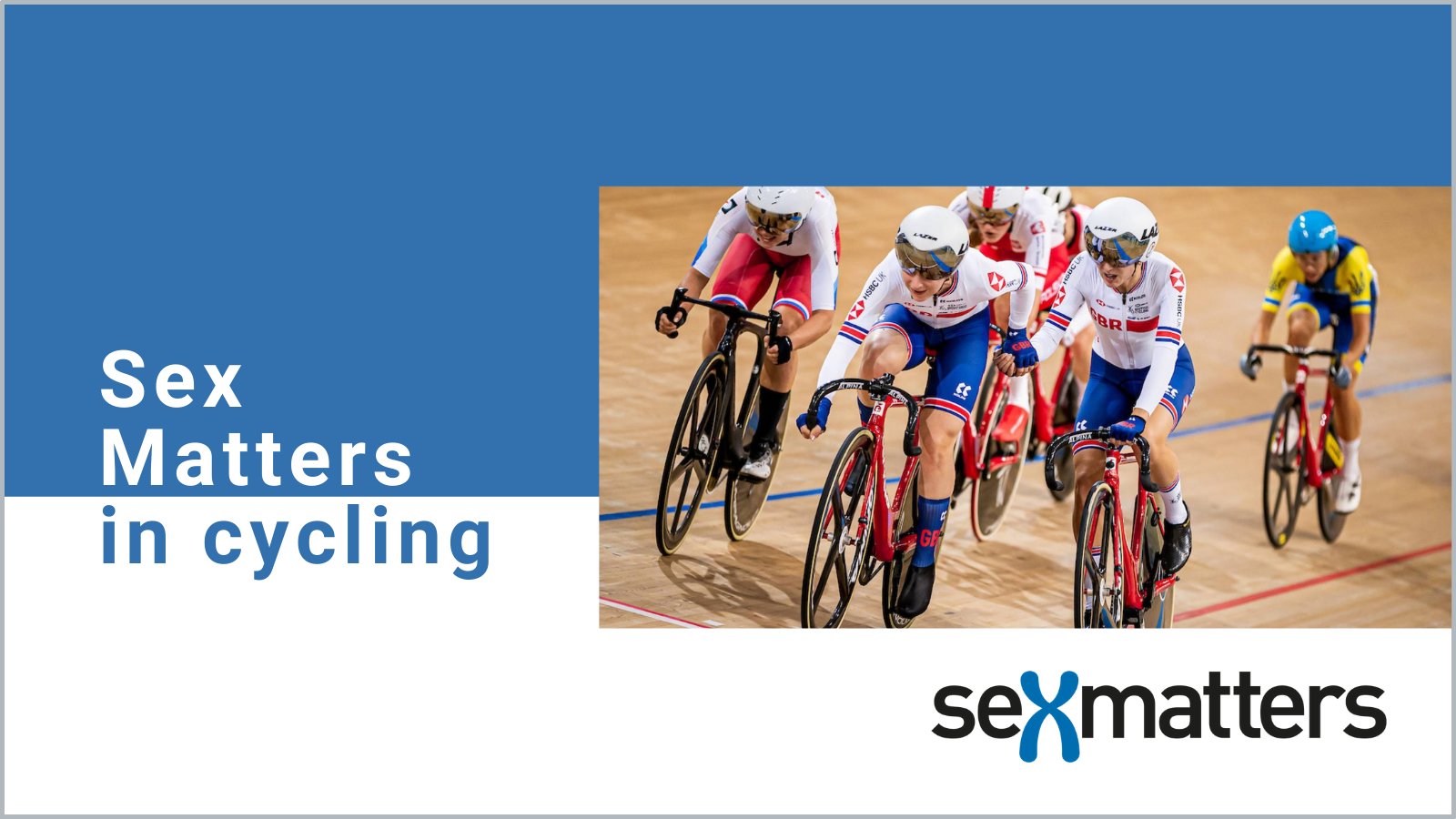
Our response to British Cycling
British Cycling is the national governing body for recreational and competitive cycle sports in Great Britain. In March 2021, they announced a new policy to address the participation of transgender and non-binary athletes in cycling events, and opened it for consultation. Their policy is that in order to provide...
14th May 2021
-
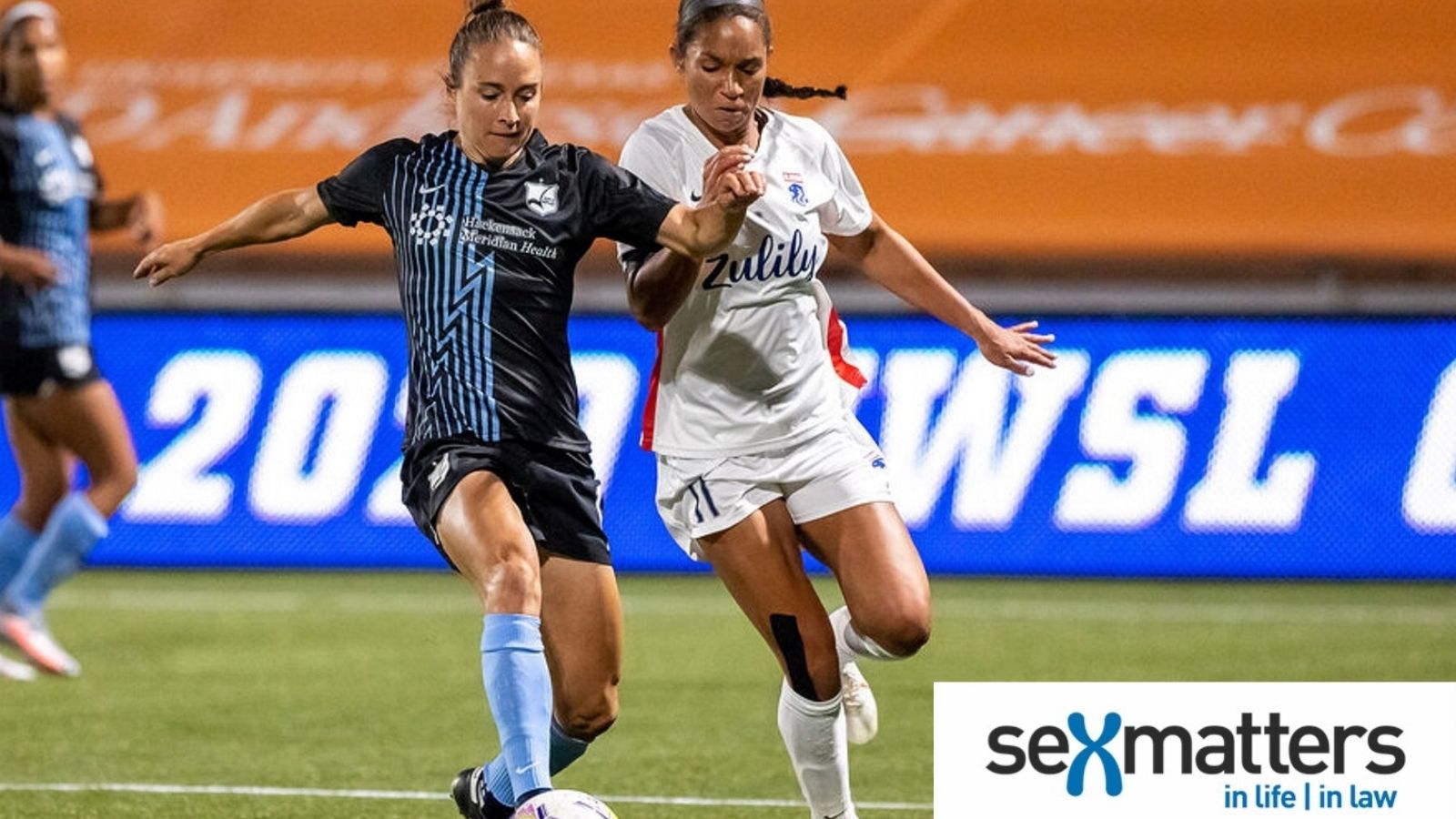
Two new scientific reviews agree that transwomen athletes retain male advantage
The debate around inclusion of transgender athletes – and in particular whether biological males who identify as women should play in female sporting competitions and teams – is a fraught one. On one hand are those who advocate for fairness, and protection for the female category in sport; on...
7th March 2021
-

Martina Navratilova seeks fair rules over women’s sport
Martina Navratilova and other sportswomen have launched a campaign to amend US President Biden’s Executive Order which demands sports participation based on gender identity. The Women’s Sports Policy Working Group is proposing a carve out at the “higher level” of High School, College and elite sport. “There have been...
3rd February 2021
Other resources
-

The International Olympic Committee framework on fairness, inclusion and nondiscrimination on the basis of gender identity and sex variations does not protect fairness for female athletes
Tommy R. Lundberg, Ross Tucker, and Emma N. Hilton contributed equally to this study for the Scandinavian Journal of Medicine and Science in Sports.
-

How trans inclusion in sport is harming women and girls
The harms caused include unfair competition and demoralisation; losing out on records, rankings or on opportunities to participate; no consent or being coerced into a mixed-sex environment; a chilling climate of intimidation, fear and silencing; loss of privacy and dignity; and risks to women’s and girls’ physical safety
-
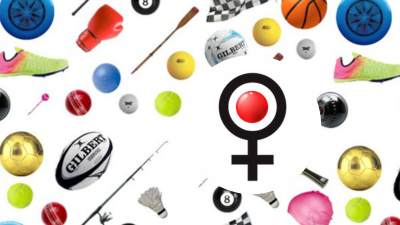
SEEN in Sport
Network set up in April 2024 for all players, coaches, officials and parents who believe that women and girl’s sport should be for biological females only Female categories were instigated by governing bodies precisely because there is a biological difference between men and women, and fair play is only...
-
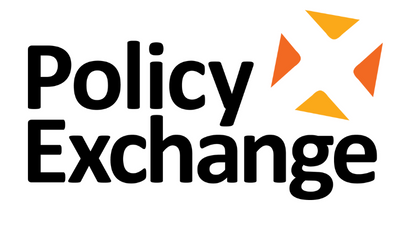
Levelling the playing field – why women and girls matter in amateur sport
Why women and girls matter in amateur sport
-
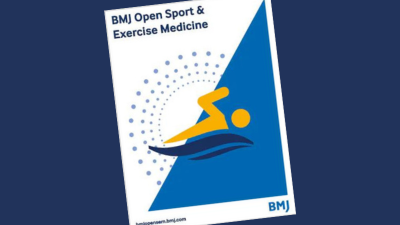
Performance of non-binary athletes in mass-participation running events
By John Armstrong, Alice Sullivan and George M Perry
BMJ Open Sport & Exercise Medicine 2023 Volume 9, Issue 4 -

The trans colonisation of women’s sports
Fiona McAnena explains how an obsessive, decades-long campaign ushered in a whole new era of sporting sexism.
-

Transgender competition in combat sports: Position statement of the Association of ringside physicians
Why the ARP does not support transgender athlete competition against cisgender athletes in combat sports – published in The Physician and Sportsmedicine, a peer-reviewed, sports-based medical journal for primary-care physicians.
-

Football teams refuse to play after transgender player injures opponent
Oliver Brown for The Telegraph
Exclusive: Four sides in Sheffield women’s league boycotting games after transgender player accused of causing a season-ending injury -

Reality vs. Trans Ideology | Helen Joyce & Peter Boghossian
Peter and Helen discuss the definition of sex, why trans men should be allowed in women’s spaces, the tragedy of the commons, fa’afafine, evolution, the “thought-terminating cliché,” the tribal fear of rejection, the cultivation of mental illness, why institutions are losing their North Stars, and much more.
1:10:31 on... -

‘Allowing trans athletes to compete as women is a throwback to the dark ages of misogyny’
Anonymous authors for The Telegraph
Three female sports competitors open up on how they really feel competing against trans women - and the fear of abuse that kept them quiet. -

Parkrun ‘self-ID’ lets biological male runners ‘smash women’s records’, Olympian claims
Catherine Lough for The Telegraph
An article prompted by what Mara Yamauchi, a member of Sex Matters' advisory group, has written. -

London Marathon has tied itself in knots by trying to be ‘inclusive’ in trans row
Oliver Brown, Chief Sports Writer, for The Telegraph
Olympian Mara Yamauchi, a member of Sex Matters’ advisory group, is quoted and given credit for drawing attention to the unfairness of the Frank case. -

Transgender athlete apologises for running London Marathon as female before transitioning
Oliver Brown, Chief Sports Writer, for The Telegraph
Frank’s apology comes in response to scathing comments from Mara Yamauchi, the third fastest British female marathon runner in history. -

Trans runner beat 14K women in London Marathon after running NYC as a man
Lee Brown for the New York Post
A two-time Olympian has ripped rules that allowed a transgender runner to beat nearly 14,000 women in the female category of the London Marathon.
The article quotes extensively from tweets made by Mara Yamauchi, a member of Sex Matters’ advisory group. -

Trans athlete running as a female in London Marathon labelled ‘wrong and unfair’
Oliver Brown, Chief Sports Writer, for The Telegraph
Olympian Mara Yamauchi, a member of Sex Matters’ advisory group, is quoted at length. -

Should Transwomen be allowed to Compete in Women’s Sports? A view from an Exercise Physiologist
By Gregory A. Brown Ph.D., Professor of Exercise Science, Physical Activity and Wellness Laboratory, Department of Kinesiology and Sport Sciences, University of Nebraska Kearney, and Tommy Lundberg Ph.D., Assistant Senior Lecturer, Department of Laboratory Medicine, Division of Clinical Physiology, Karolinska Institutet, Stockholm, SWE
-

Should transwomen be allowed to compete in women’s sports?
A view from an Exercise Physiologist
Gregory A. Brown Ph.D., Professor of Exercise Science, Physical Activity and Wellness Laboratory, Department of Kinesiology and Sport Sciences, University of Nebraska Kearney,
Tommy Lundberg Ph.D., Assistant Senior Lecturer, Department of Laboratory Medicine, Division of Clinical Physiology, Karolinska Institutet, Stockholm, SWE -

EDI contra science – the misuse of “ethics” in academic research
John Armstrong writes for The Crtitic about how he was asked to survey elite athletes on their views on trans participation in athletics, but the ethics committee at King’s College, London rejected his research proposal on the grounds that the terms “male” and “female” were unacceptable.
1st April 2023
-
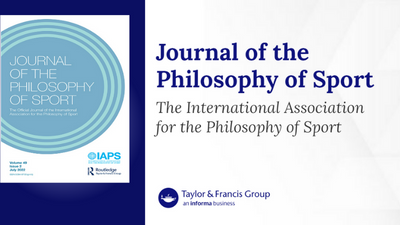
Why ‘Meaningful Competition’ is not fair competition
Jon Pike discusses a new conception in the context of the debate over the inclusion of transwomen in female sport: ‘Meaningful Competition’, arguing that it is is not fair; that it is an attempt to substitute for the perfectly serviceable concept of fair competition, and an attempt at conceptual...
-

UK Athletics claims law change needed to ban trans women from female events
Sean Ingle for The Guardian
Sex Matters is quoted.
UKA wants to have female-born and open categories; Ian Beattie says equality laws prevent change at present -

Fair Play For Women
Campaigning and consultancy group which raises awareness, provides evidence and analysis, and supports policy-makers to protect the rights of women and girls in the UK. Opposes sex self-ID, and also played a large part in the government’s decision to abandon plans to introduce it in England and Wales in...
-

A progress report on the fight to restore fairness in female sport
In the past year Fair Play For Women have met with more than fifty sport governing bodies, mostly in the UK, plus a few world federations, about their transgender inclusion policies.
-

Women’s Rights Network
Combined grassroots groups of women who oppose sex self-ID. Supports local, in-person networking. Has topic-related groups (such as sports, prisons, schools) that create resources, including videos and podcasts and social-media posts, and coordinate national campaigns. Was a core member of the “Respect My Sex” campaign before the local elections...
-

Should trans women be able to compete in female sport?
Ex-Team GB athlete Mara Yamauchi (a member of Sex Matters’ advisory group) interviewed by Andrew Doyle for GB News.
13:01 video on YouTube -
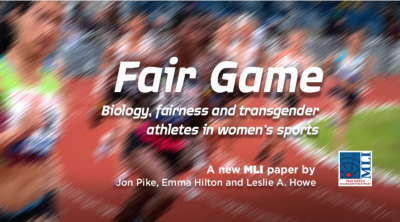
Fair Game: biology, fairness and transgender athletes in women’s sports
Jon Pike, Emma Hilton, and Leslie A. Howe lay out the physical advantages of athletes who are born male, and reject gender-based criteria for competition, proposing instead a solution that will allow all athletes to compete fairly.
-

On the issue of female athletics, the IOC has shirked its duty to lead
Doriane Coleman and Martina Navratilova analyse the recent IOC Framework on Fairness, Inclusion, and Non-Discrimination on the Basis of Gender Identity and Sex Variations
-
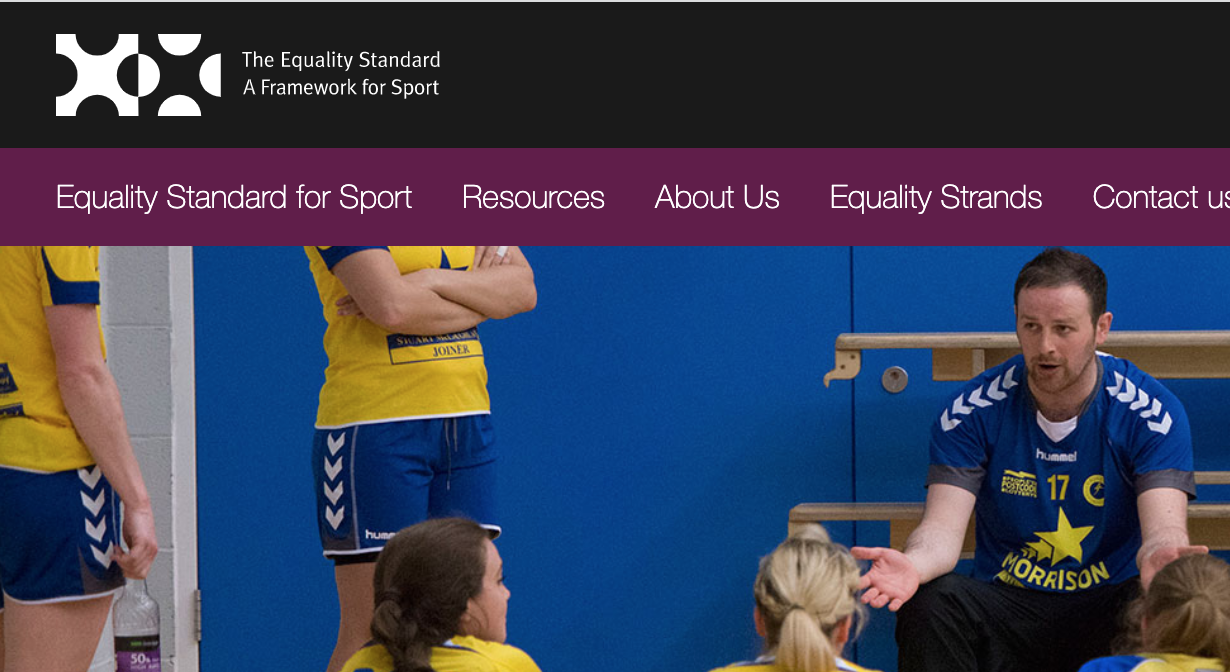
Guidance for transgender inclusion in domestic sport
September 2021 report based on the latest research, evidence and studies from the Sports Councils’ Equality Group, made up of the five Sports Councils responsible for supporting and investing in sport across England, Wales, Scotland and Northern Ireland.
-
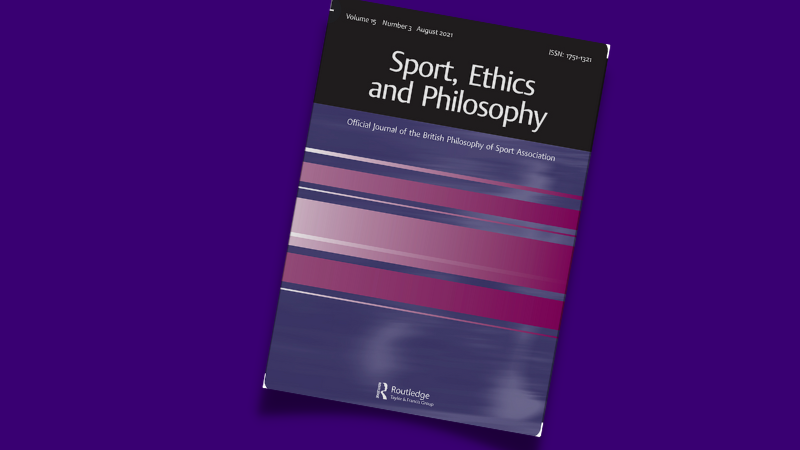
Female Sports Participation, Gender Identity and the British 2010 Equality Act
Cathy Devine’s manuscript copy of her paper in Sport, Ethics and Philosophy, which investigates the impact on the inclusion of girls and women, of eligibility policies adopting ‘self-identification of gender’ guidelines for the inclusion of transgender people in sport, at participation rather than elite levels.
-
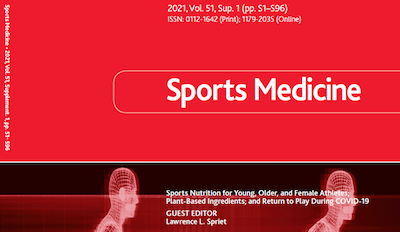
Transgender Women in the Female Category of Sport: Perspectives on Testosterone Suppression and Performance Advantage
This paper reviews how differences between males and females affect sporting performance and assess the evidence on testosterone suppression in removing the male performance advantage.
-

Dr Emma Hilton reviews the science supporting the IOC decision to let male-born transgender athletes into female competition
This is the video and transcript of the speech given by Dr Emma Hilton at the #WPUKFairPlay meeting in London on 10th July 2019. 21:21 video plus transcript
-
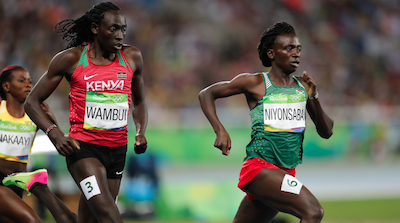
A victory for female athletes everywhere
Doriane Lambelet Coleman explains the regulations about eligibility for the women’s category in international elite athletics competition; why they matter, and why there are so many athletes with a 46, XY DSD.
Publications
-
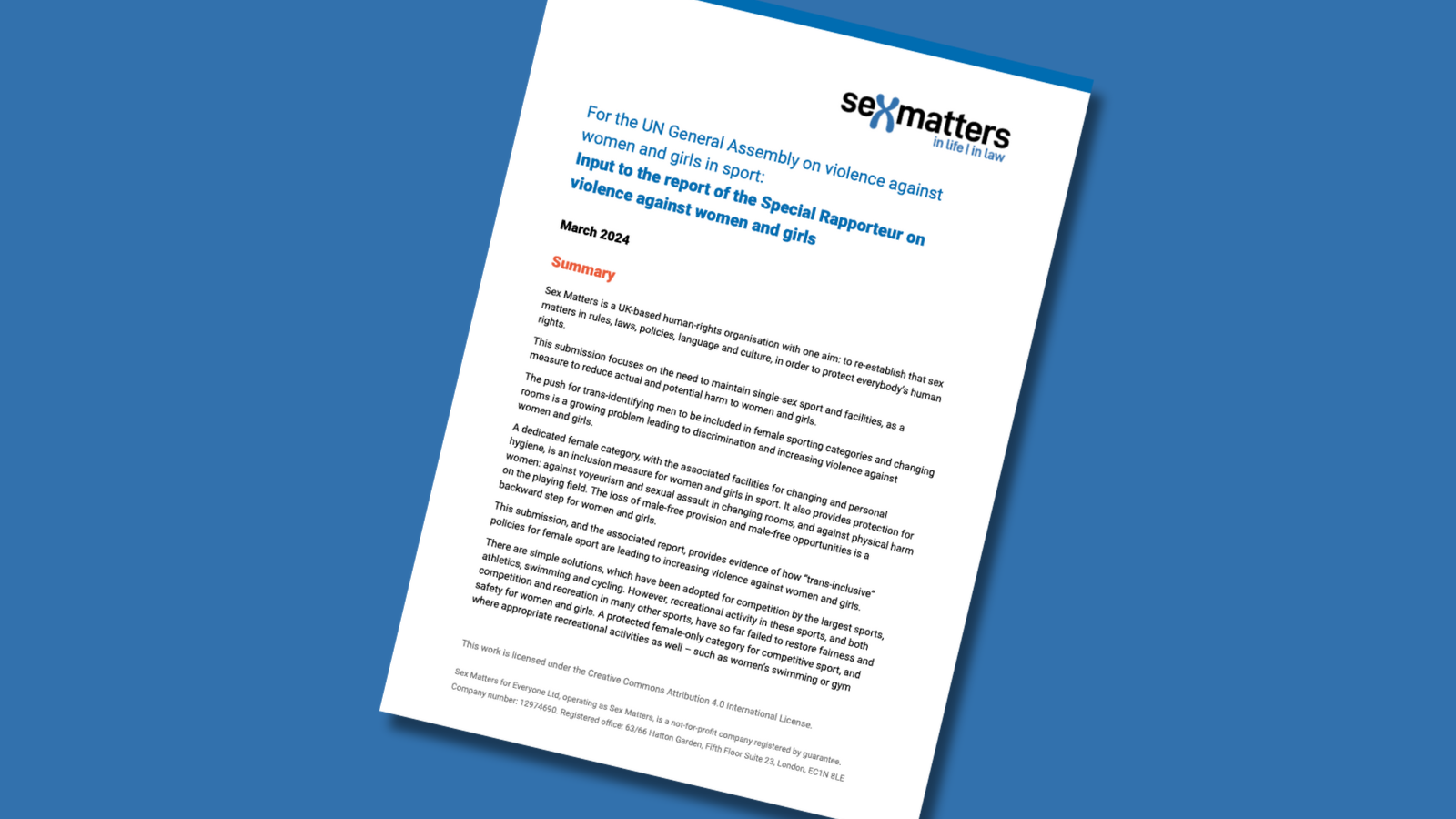
Input to the report of the Special Rapporteur on violence against women and girls
For the UN General Assembly on violence against women and girls in sport. Sent with Fair Play For Women's report How 'inclusion' in sport is harming women and girls.
-
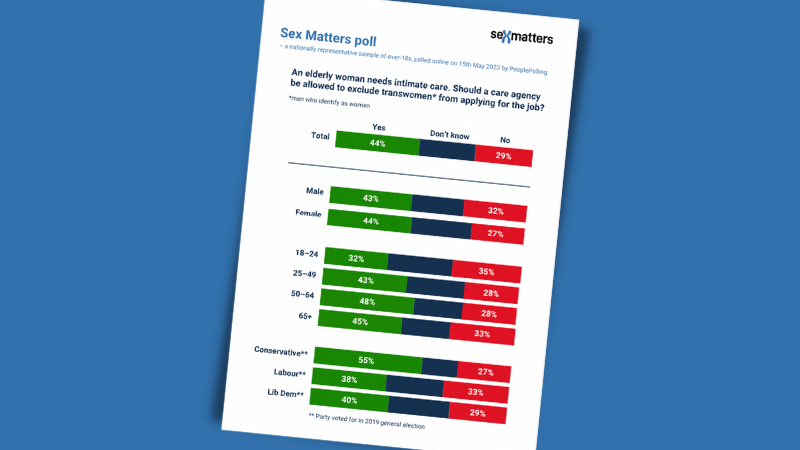
Sex Matters poll results as graphics (for printing)
A six-page graphical summary of the figures from our poll: a nationally representative sample of over-18s, polled online on 15th May 2023 by PeoplePolling. Optimised for printing.
-
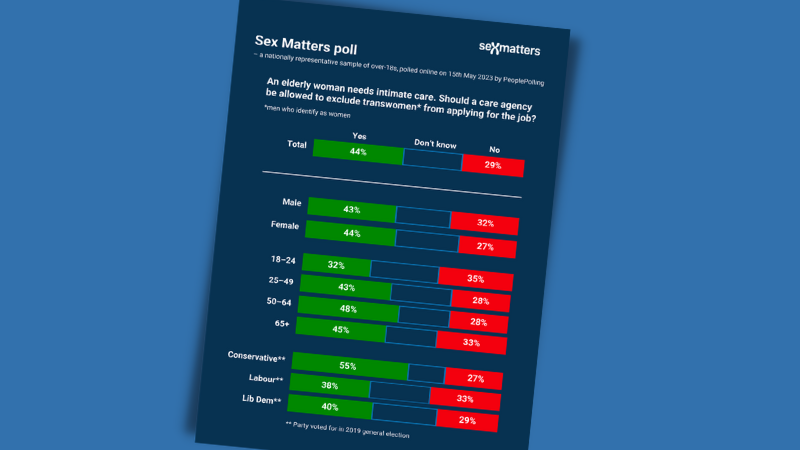
Sex Matters poll results as graphics (for screen)
A six-page graphical summary of the figures from our poll: a nationally representative sample of over-18s, polled online on 15th May 2023 by PeoplePolling.
-
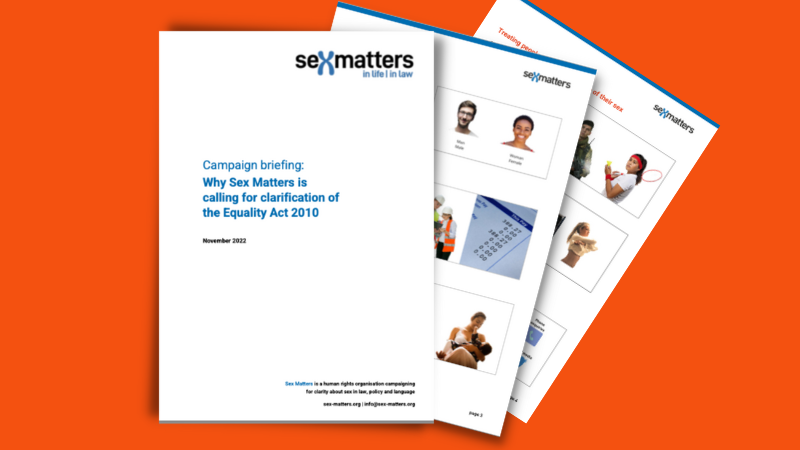
Why Sex Matters is calling for clarification of the Equality Act 2010 – a briefing
Sex Matters has launched a petition calling on the government to clarify that in the Equality Act 2010, “sex” means biological sex, and is not modified by the Gender Recognition Act 2004. This would protect the rights of people of both sexes, as well as people who identify as...
-
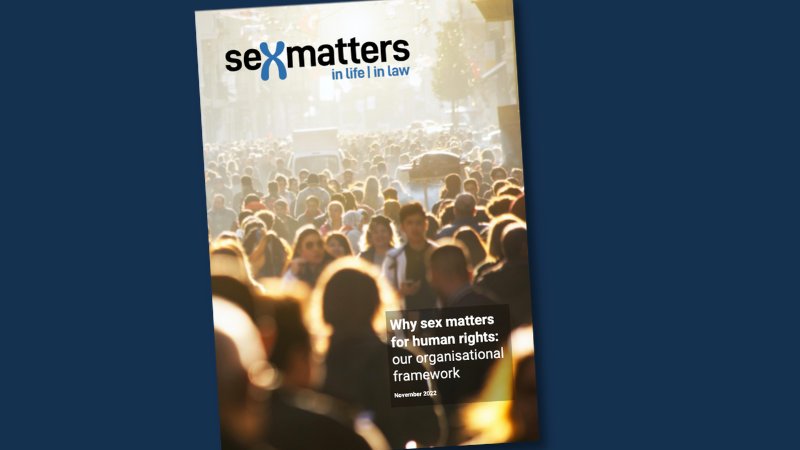
Why sex matters for human rights – our organisational framework
Sex Matters’ mission is to promote clarity on sex in law and policy in order to protect everybody’s human rights. This document sets out the key human rights that are relevant, and why and how our work is guided by the promotion of human rights. (Also see our short guide...
-
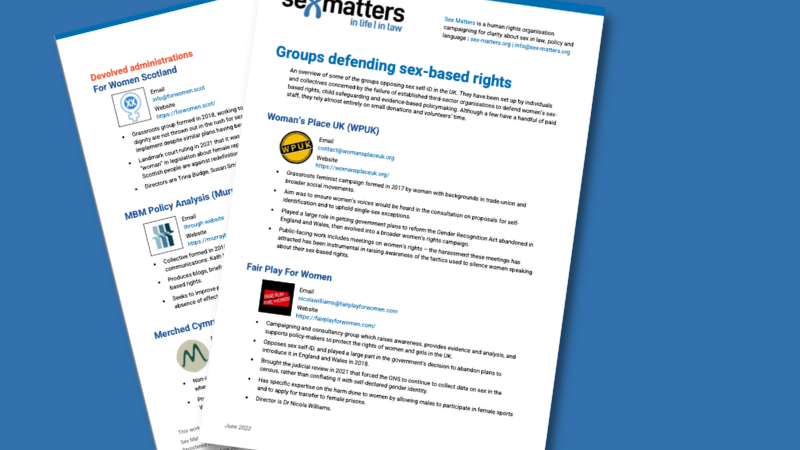
Groups defending sex-based rights
Overview of groups opposing sex self-ID in the UK, set up by individuals and collectives concerned by the failure of established third-sector organisations to defend women’s sex-based rights, child safeguarding and evidence-based policymaking. Also listed on our website.
-
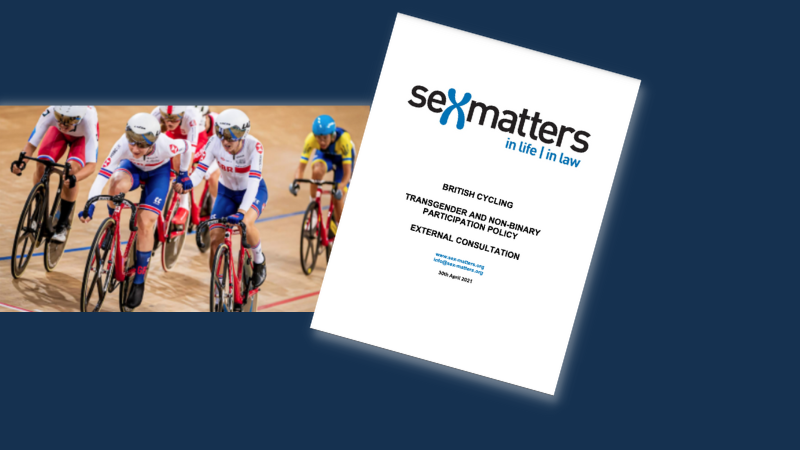
Submission to British Cycling
Our response to British Cycling’s new transgender and non-binary participation policy, which fails to protect fairness for female riders.
-
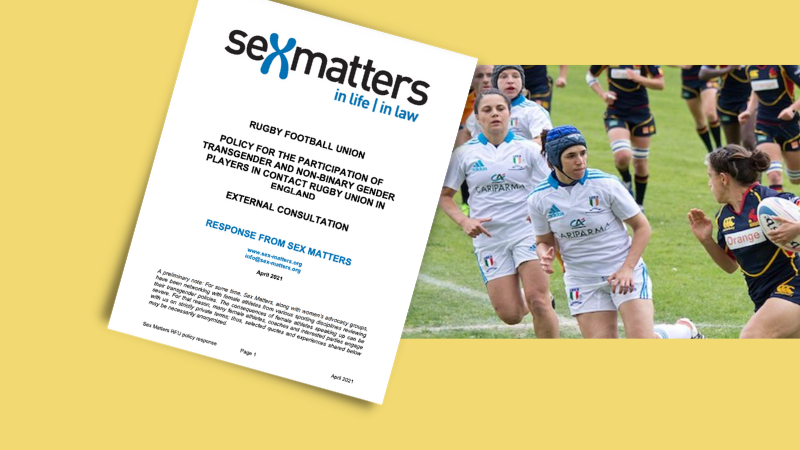
Submission to Rugby England
We draw on expertise from scientists, sports philosophers and female athletes in this response to the proposed new policy.
-
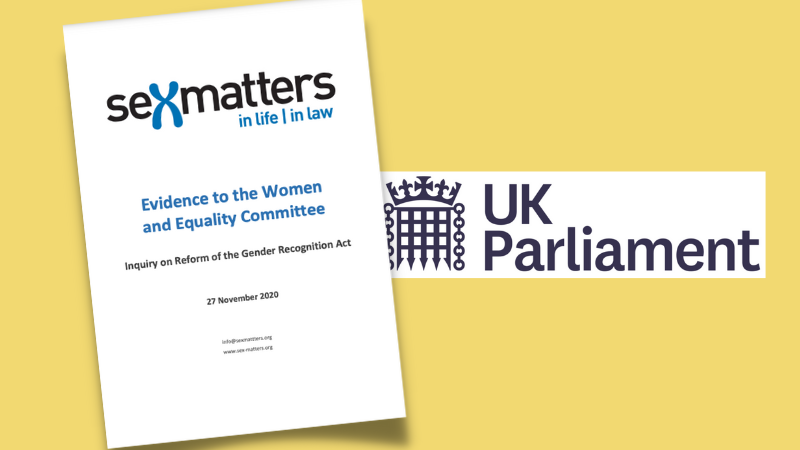
Gender Recognition Act reform – evidence submission
We answer the Women and Equalities Select Committee‘s questions and make six recommendations.

